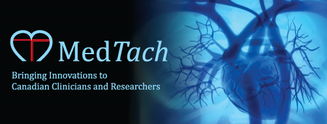As the field of cancer treatment continues to evolve, Chimeric Antigen Receptor T-cell (CAR-T) therapy has emerged as a promising new player. This innovative immunotherapy uses the body's own immune system to fight cancer. Despite its impressive therapeutic potential, it's important to understand that CAR-T therapy, like any medical treatment, can have side effects. Let's delve into these potential side effects to provide a comprehensive understanding of this powerful therapy.
Cytokine Release Syndrome (CRS
Perhaps the most common and serious side effect of CAR-T therapy is Cytokine Release Syndrome (CRS). Cytokines are proteins that play a crucial role in cell signaling. When CAR-T cells multiply and attack cancer cells, they release large amounts of cytokines into the bloodstream. This sudden influx can lead to a systemic inflammatory response, often referred to as a "cytokine storm."
Symptoms of CRS can range from mild to severe, including high fever, fatigue, nausea, headache, rash, rapid heartbeat, low blood pressure, and difficulty breathing. In extreme cases, CRS can lead to life-threatening complications, such as organ failure.
While CRS can be alarming, it's crucial to note that it is usually manageable with appropriate medical interventions. In many instances, symptoms resolve once the cytokine levels normalize.
Symptoms of CRS can range from mild to severe, including high fever, fatigue, nausea, headache, rash, rapid heartbeat, low blood pressure, and difficulty breathing. In extreme cases, CRS can lead to life-threatening complications, such as organ failure.
While CRS can be alarming, it's crucial to note that it is usually manageable with appropriate medical interventions. In many instances, symptoms resolve once the cytokine levels normalize.
Neurologic Toxicities
Another significant concern with CAR-T therapy is neurologic toxicities, also known as CAR-T cell-related encephalopathy syndrome (CRES). These can present as confusion, disorientation, difficulty speaking or understanding speech, seizures, or loss of consciousness.
The exact cause of these neurological side effects is not fully understood, but they're thought to be linked to the inflammatory response triggered by CAR-T therapy. Fortunately, these symptoms are typically reversible and tend to resolve over time with appropriate medical care.
The exact cause of these neurological side effects is not fully understood, but they're thought to be linked to the inflammatory response triggered by CAR-T therapy. Fortunately, these symptoms are typically reversible and tend to resolve over time with appropriate medical care.
B-cell Aplasia
Because CAR-T cells often target antigens found on healthy B cells as well as cancer cells, patients may experience B-cell aplasia, a condition where the body has fewer B cells than normal. This can lead to a weakened immune system and increased susceptibility to infections. Patients may require immunoglobulin replacement therapy to help boost their immune response.
Other Side Effects
Other potential side effects of CAR-T therapy may include fatigue, anemia, decreased appetite, and increased susceptibility to infections. Patients might also experience symptoms related to tumor lysis syndrome, a condition that occurs when a large number of cancer cells are destroyed rapidly, leading to an imbalance in certain chemicals in the body.
While the potential side effects of CAR-T therapy can be severe, it's important to remember that they're typically manageable with timely medical intervention and ongoing supportive care. Moreover, the risk of side effects should be weighed against the potential benefits of CAR-T therapy, particularly for patients with refractory or relapsed cancers who have few other treatment options.
Research is continuously ongoing to enhance the safety and efficacy of CAR-T therapy, and strides are being made in mitigating these side effects. For example, new techniques are being explored to improve CAR design, optimize the timing and dosage of CAR-T cell administration, and refine supportive care protocols.
It's crucial for anyone considering CAR-T therapy to have a detailed discussion with their healthcare provider about the potential benefits and risks. This can help ensure informed decision-making and set realistic expectations about the therapy.
In conclusion, while CAR-T therapy holds immense promise in the fight against cancer, understanding its potential side effects is a key part of this evolving narrative. As research continues, we can remain hopeful about further improvements and breakthroughs that will make CAR-T therapy an even more effective and safer option in cancer treatment.
While the potential side effects of CAR-T therapy can be severe, it's important to remember that they're typically manageable with timely medical intervention and ongoing supportive care. Moreover, the risk of side effects should be weighed against the potential benefits of CAR-T therapy, particularly for patients with refractory or relapsed cancers who have few other treatment options.
Research is continuously ongoing to enhance the safety and efficacy of CAR-T therapy, and strides are being made in mitigating these side effects. For example, new techniques are being explored to improve CAR design, optimize the timing and dosage of CAR-T cell administration, and refine supportive care protocols.
It's crucial for anyone considering CAR-T therapy to have a detailed discussion with their healthcare provider about the potential benefits and risks. This can help ensure informed decision-making and set realistic expectations about the therapy.
In conclusion, while CAR-T therapy holds immense promise in the fight against cancer, understanding its potential side effects is a key part of this evolving narrative. As research continues, we can remain hopeful about further improvements and breakthroughs that will make CAR-T therapy an even more effective and safer option in cancer treatment.
Want to learn how to protect your patients during CAR-T therapy?

 RSS Feed
RSS Feed